The Spirit Of Sauntering:
Walking In The Holy Land
Henry David Thoreau
"Beloved Writers As An Antidote To Depression"
Maria Popova, Brain Pickings
“It is not upon you alone the dark patches fall, the dark threw its patches down upon me also,” Walt Whitman (May 31, 1819–March 26, 1892) wrote in his deepest-feeling, furthest-seeing poem. When the dark patches fall on me also, I stand with Whitman in turning to the most reliable wellspring of light — the natural world, or what he so soulfully termed “the bracing and buoyant equilibrium of concrete outdoor Nature, the only permanent reliance for sanity of book or human life” — the Moon seen through a telescope, so proximate and unassailable, this radiant orb of primeval scar tissue; the mossy trunk of a centuries-old cedar, ringed with the survival of wars and famines, a silent witness to countless human heartaches; the song of the thrush and the bloom of the magnolia and the lush optimism of that first blade of grass through the frosty soil — these bewilderments of beauty do not dissipate the depression, but they do dissipate the self-involvement with which we humans live through our sorrows, and in so unselfing us, they give us back to ourselves.
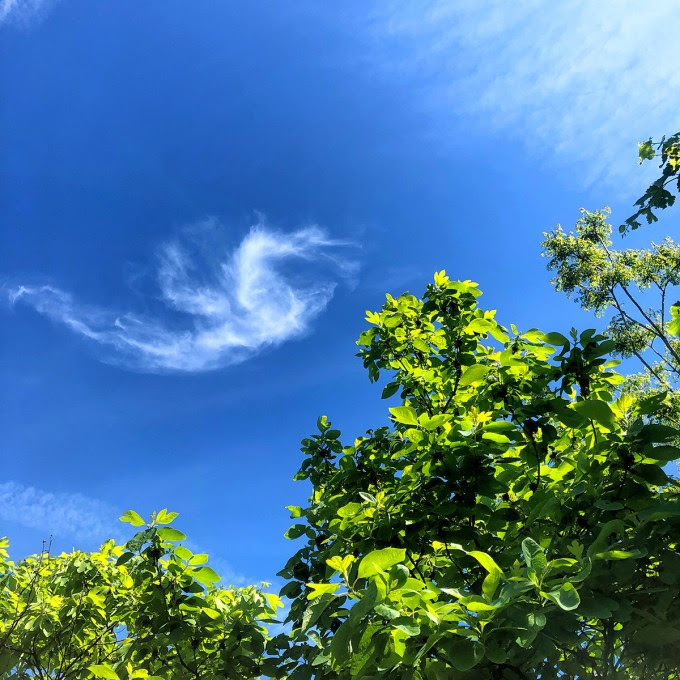
The Bearable Lightness of Being by Maria Popova. (Available as a print benefiting The Nature Conservancy.)
Here are several beloved writers from the past quarter millennium who have known the dark patches intimately and have written beautifully about this abiding antidote to the inner gloom, beginning, as we must, with the poet laureate of Nature himself.
WALT WHITMAN |
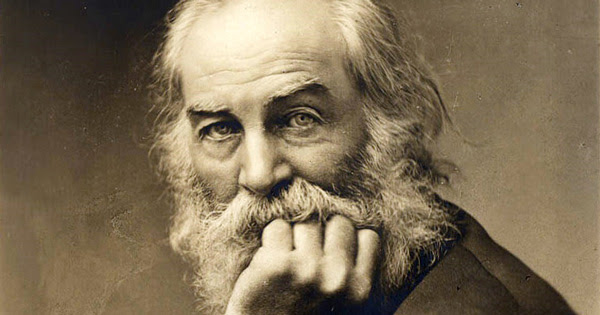
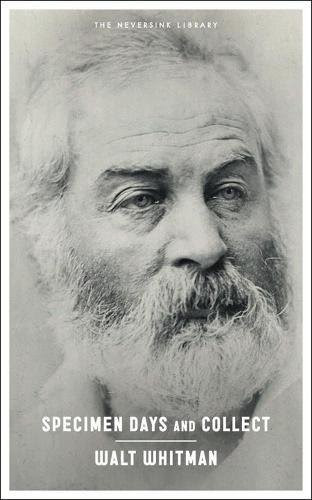 Even as he was composing Leaves of Grass — that timeless gift of light — Whitman was wormed by the darkest self-doubt: “Every thing I have done seems to me blank and suspicious,” he anguished in his diary. “I doubt whether my greatest thoughts…. are not shallow — and people will most likely laugh at me.” But on some elemental level, he knew that those capable of reaching “sunny expanses and sky-reaching heights” are equally apt “to dwell on the bare spots and darknesses.” He believed “that no artist or work of the very first class may be or can be without them.” It is a notion entirely different from the dangerous myth of the suffering artist — rather, it is the bold acknowledgement that in order for one to make works of irrepressible truth and beauty, one ought to feel fully, to draw on the entire spectrum of being without repressing the darkest emotions.
Even as he was composing Leaves of Grass — that timeless gift of light — Whitman was wormed by the darkest self-doubt: “Every thing I have done seems to me blank and suspicious,” he anguished in his diary. “I doubt whether my greatest thoughts…. are not shallow — and people will most likely laugh at me.” But on some elemental level, he knew that those capable of reaching “sunny expanses and sky-reaching heights” are equally apt “to dwell on the bare spots and darknesses.” He believed “that no artist or work of the very first class may be or can be without them.” It is a notion entirely different from the dangerous myth of the suffering artist — rather, it is the bold acknowledgement that in order for one to make works of irrepressible truth and beauty, one ought to feel fully, to draw on the entire spectrum of being without repressing the darkest emotions.
In Whitman’s fifty-third year, life tested his credo — a paralytic stroke left him severely disabled. Under his brother’s care in the woods of New Jersey, he set about the slow, painstaking process of recovery. As he began regaining use of his body, he attributed the small, hard-earned triumphs to being “daily in the open air,” among the trees and under the stars. He eventually recovered almost completely, having turned the woods into an outdoor gym, but the cataclysm left him existentially shaken into considering the most elemental questions: Where does one find meaning amid the precarious uncertainty of being? How does one maximize those little pockets of gladness that make it possible to go on living and making art through acute suffering? What, ultimately, makes life worth living?
His resulting meditations appear in Specimen Days (public library) — the altogether indispensable collection of his prose fragments, letters, and journal entries that also gave us Whitman’s reflections on the spiritual power of music, optimism as a force of political resistance, and how to keep criticism from sinking your creative confidence.

Art by Margaret C. Cook from a rare 1913 edition of Leaves of Grass. (Available as a print.)
A decade after his stroke, Whitman looked back on what saved him — body and soul — and writes:
The trick is, I find, to tone your wants and tastes low down enough, and make much of negatives, and of mere daylight and the skies.
[…]After you have exhausted what there is in business, politics, conviviality, love, and so on — have found that none of these finally satisfy, or permanently wear — what remains? Nature remains; to bring out from their torpid recesses, the affinities of a man or woman with the open air, the trees, fields, the changes of seasons — the sun by day and the stars of heaven by night.
In another entry, he considers the essence of happiness, locating it in absolute presence with nature and unalloyed attention with the rhythms of the Earth:
I don’t know what or how, but it seems to me mostly owing to these skies, (every now and then I think, while I have of course seen them every day of my life, I never really saw the skies before,) I have had this autumn some wondrously contented hours — may I not say perfectly happy ones? As I’ve read, Byron just before his death told a friend that he had known but three happy hours during his whole existence. Then there is the old German legend of the king’s bell, to the same point. While I was out there by the wood, that beautiful sunset through the trees, I thought of Byron’s and the bell story, and the notion started in me that I was having a happy hour. (Though perhaps my best moments I never jot down; when they come I cannot afford to break the charm by inditing memoranda. I just abandon myself to the mood, and let it float on, carrying me in its placid extasy.)
JOHN KEATS |

 “Life must be undergone,” John Keats (October 31, 1795–February 23, 1821) wrote to his closest friend, “and I certainly derive a consolation from the thought of writing one or two more Poems before it ceases.” Keats’s brief life was savaged by periodic onslaughts of depression. In another fragment of his excellent in his Selected Letters (public library), he writes: “I am now so depressed I have not an Idea to put to paper — my hand feels like lead — and yet it is an unpleasant numbness it does not take away the pain of existence.”
“Life must be undergone,” John Keats (October 31, 1795–February 23, 1821) wrote to his closest friend, “and I certainly derive a consolation from the thought of writing one or two more Poems before it ceases.” Keats’s brief life was savaged by periodic onslaughts of depression. In another fragment of his excellent in his Selected Letters (public library), he writes: “I am now so depressed I have not an Idea to put to paper — my hand feels like lead — and yet it is an unpleasant numbness it does not take away the pain of existence.”
Keats found only two remedies for the soul-stifling numbness: the love of his friends (“I could not live without the love of my friends”) and the love of nature. Another letter to his dearest friend stands as a beautiful, bittersweet testament to both:
You perhaps at one time thought there was such a thing as Worldly Happiness to be arrived at, at certain periods of time marked out — you have of necessity from your disposition been thus led away — I scarcely remember counting upon any Happiness — I look not for it if it be not in the present hour — nothing startles me beyond the Moment. The setting sun will always set me to rights — or if a Sparrow come before my Window I take part in its existence and pick about the Gravel.
LORRAINE HANSBERRY |

 It is impressive enough that Lorraine Hansberry (May 19, 1930–January 12, 1965) — whom James Baldwin adored and described as “a small, shy, determined person… not trying to ‘make it’ [but just] trying to keep the faith” — revolutionized our cultural landscape of possibility by becoming the first black playwright performed on Broadway and going on to furnish civil rights with a whole new vocabulary of action. It is triply impressive that she did so while the grey nimbus of depression hung low and heavy over vast swaths of her life. Hansberry kept the faith largely by turning to nature for its irrepressible light.
It is impressive enough that Lorraine Hansberry (May 19, 1930–January 12, 1965) — whom James Baldwin adored and described as “a small, shy, determined person… not trying to ‘make it’ [but just] trying to keep the faith” — revolutionized our cultural landscape of possibility by becoming the first black playwright performed on Broadway and going on to furnish civil rights with a whole new vocabulary of action. It is triply impressive that she did so while the grey nimbus of depression hung low and heavy over vast swaths of her life. Hansberry kept the faith largely by turning to nature for its irrepressible light.
In a diary entry quoted in Imani Perry’s altogether magnificent biography Looking for Lorraine: The Radiant and Radical Life of Lorraine Hansberry (public library), Hansberry observes with dispassionate remove that her unhappiness has taken on the shape of “a steady, calm quiet sort of misery”; sitting in a place she had once adored, now feeling “feeling cold, useless, frustrated, helpless, disillusioned, angry and tired” there, she turns her weary gaze toward the only salve she knows:
Hills, the trees, sunrise and sunset — the lake the moon and the stars / summer clouds — the poets have been right in these centuries… even in its astounding imperfection this earth of ours is magnificent.
HENRY DAVID THOREAU |
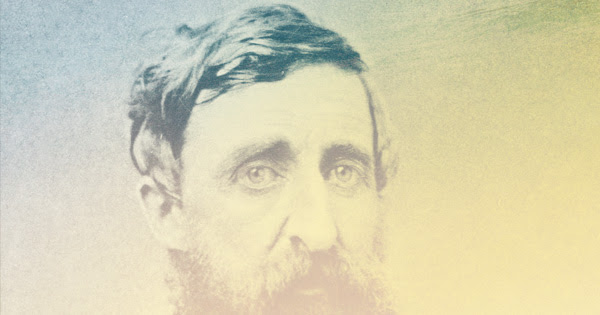
 To those superficially acquainted with his life and work, Henry David Thoreau (July 12, 1817–May 6, 1862) might appear as a rosy-lensed optimist drunk on transcendentalist delusion, living in self-elected exile from the darker realities of the world. Such an estimation of his inner world — of anyone’s inner world — is not only impoverished of nuance, but orthogonal to the complex full-spectrum human begin who rises from the pages of The Journal of Henry David Thoreau (public library) — that timeless fount of truth bathing us across the centuries in Thoreau’s wisdom on such varied aspects of aliveness as knowing versus seeing, the myth of productivity, the greatest gift of growing old, the sacredness of public libraries, the creative benefits of keeping a diary, and the only worthwhile definition of success.
To those superficially acquainted with his life and work, Henry David Thoreau (July 12, 1817–May 6, 1862) might appear as a rosy-lensed optimist drunk on transcendentalist delusion, living in self-elected exile from the darker realities of the world. Such an estimation of his inner world — of anyone’s inner world — is not only impoverished of nuance, but orthogonal to the complex full-spectrum human begin who rises from the pages of The Journal of Henry David Thoreau (public library) — that timeless fount of truth bathing us across the centuries in Thoreau’s wisdom on such varied aspects of aliveness as knowing versus seeing, the myth of productivity, the greatest gift of growing old, the sacredness of public libraries, the creative benefits of keeping a diary, and the only worthwhile definition of success.
To be sure, living in such intimate proximity with nature, Thoreau was given to elations that evade the modern civilization-stifled mind. In an entry penned two days after his thirty-third birthday, he exults:
What sweet and tender, the most innocent and divinely encouraging society there is in every natural object, and so in universal nature, even for the poor misanthrope and most melancholy man! There can be no really black melancholy to him who lives in the midst of nature and has still his senses.
But his existential radiance was abruptly blackened when his best and at times only friend — his brother John — died of tetanus from a shaving cut when Thoreau was twenty-five. He watched in helpless horror as lockjaw warped his brother’s face and spasms contorted his body before the deadly bacterium claimed his life. He then sank into a deep depression that never fully receded, lapping at him in lifelong waves.
Again and again, Thoreau took solace in nature. In the high summer of 1852, a decade after his brother’s death and a decade before his own, Thoreau draws in the margin of his journal a sketch of the local hill crests, dotted with the tops of trees, then considers this natural vista as a life-saving calibration of perspective for the sorrow-blinded heart:
Even on the low principle that misery loves company and is relieved by the consciousness that it is shared by many, and therefore is not so insignificant and trivial, after all, this blue mountain outline is valuable. In many moods it is cheering to look across hence to that blue rim of the earth, and be reminded of the invisible towns and communities, for the most part also unremembered, which lie in the further and deeper hollows between me and those hills. Towns of sturdy uplandish fame, where some of the morning and primal vigor still lingers… it is cheering to think that it is with such communities that we survive or perish… The melancholy man who had come forth to commit suicide on this hill might be saved by being thus reminded how many brave and contented lives are lived between him and the horizon. Those hills extend our plot of earth; they make our native valley or indentation in the earth so much the larger.
In another entry penned in autumn — which, long before the diagnostic notion of seasonal affective disorder, Thoreau noted as a season when the human spirit tends to take a marked downturn — he draws from a particular creation of nature a living metaphor for how to move through the darkest seasons of the heart:
If you are afflicted with melancholy at this season, go to the swamp and see the brave spears of skunk-cabbage buds already advanced toward a new year. Their gravestones are not bespoken yet. Is it the winter of their discontent? Do they seem to have lain down to die, despairing of skunk-cabbagedom? “Up and at ’em,” “Give it to ’em,” “Excelsior,” “Put it through,” — these are their mottoes. Mortal human creatures must take a little respite in this fall of the year; their spirits do flag a little. There is a little questioning of destiny, and thinking to go like cowards to where the “weary shall be at rest.” But not so with the skunk-cabbage. Are these false prophets? Is it a lie or a vain boast underneath the skunk-cabbage bud, pushing it upward and lifting the dead leaves with it? They rest with spears advanced; they rest to shoot!… See those green cabbage buds lifting the dry leaves in that watery and muddy place. There is no can’t nor cant to them. They see over the brow of winter’s hill. They see another summer ahead.
RACHEL CARSON |
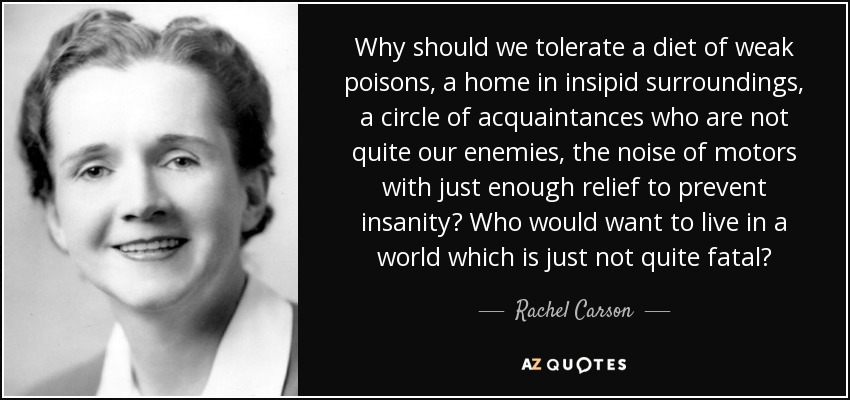
 “Last night the thoughts of all the birds and other creatures and all the loveliness that is in nature came to me with such a surge of deep happiness, that now I had done what I could,” the great marine biologist and author Rachel Carson (May 27, 1907–April 14, 1964) wrote to her soul mate, Dorothy Freeman, of that symphonic moment when she turned in the manuscript of Silent Spring — the courageous exposé that catalyzed the environmental movement, which had taken Carson a decade of incubation and four years of rigorous research to bring to life as she was dying of cancer. Dorothy had been her pillar throughout both of these superhuman parallel journeys — the only person in whom this brilliant, stoical woman confided the complexity of her inner world, her writing process and the loneliness of creative work, her silent battles. (Their tender relationship and how it shored up Carson’s scientific work and far-reaching cultural legacy animate the last two hundred pages of Figuring, from which this miniature essay is adapted.)
“Last night the thoughts of all the birds and other creatures and all the loveliness that is in nature came to me with such a surge of deep happiness, that now I had done what I could,” the great marine biologist and author Rachel Carson (May 27, 1907–April 14, 1964) wrote to her soul mate, Dorothy Freeman, of that symphonic moment when she turned in the manuscript of Silent Spring — the courageous exposé that catalyzed the environmental movement, which had taken Carson a decade of incubation and four years of rigorous research to bring to life as she was dying of cancer. Dorothy had been her pillar throughout both of these superhuman parallel journeys — the only person in whom this brilliant, stoical woman confided the complexity of her inner world, her writing process and the loneliness of creative work, her silent battles. (Their tender relationship and how it shored up Carson’s scientific work and far-reaching cultural legacy animate the last two hundred pages of Figuring, from which this miniature essay is adapted.)
In early June 1963, a year after the release of Silent Spring, Carson climbed into the passenger seat of her Oldsmobile and had her assistant take her from her home in Maryland to Capitol Hill — the pain in her back, spine, shoulder, and neck was by now too unbearable for Carson to drive even this short distance herself — to appear before a congressional committee on pesticides, summoned as a consequence of Silent Spring. Under the bright television lights, all traces of physical agony fled from the authoritative presence that took the witness stand in the windowless, wood-paneled Room 102 of the Senate building. 101 years after Abraham Lincoln greeted Uncle Tom’s Cabin author Harriet Beecher Stowe with the words “This is the little woman who wrote the book that started this great war,” the presiding Senator greeted Carson: “Miss Carson… we welcome you here. You are the lady who started all this. Will you please proceed.”
Speaking calmly into the press posy of six microphones before her, Carson proceeded to deliver a stunning forty-minute testimony predicated on revealing the delicate interconnectedness of nature and tracing the far-reaching devastation inflicted by poisonous chemicals once they enter an ecosystem. She called for a “strong and unremitting effort” to reduce and eventually eliminate pesticides. While her testimony was strewn with facts, it was palpably poetic in its elegy for ecology. She gave her strong recommendation for establishing an agency tasked with safeguarding nature — a landmark development that would take the government another seven years to institute. Carson would never live to see the creation of the Environmental Protection Agency, nor its ban of DDT, both the direct result of her work.
Her congressional testimony, after which she was flooded by letters from citizens thanking her for having spoken inconvenient truth to power, was a crowning moment for the sense of duty that had propelled Carson through the arduous years leading up to Silent Spring. Having executed her responsibility as a citizen, scientist, and steward of life, she was free and restless to return to the sea, to her summer cabin on Southport Island in Maine, to Dorothy.
No record survives of the weeks containing Rachel and Dorothy’s last summer hours together — the absence of letters suggesting that they spent every precious moment in each other’s presence. Tide pool excursions were now a thing of the past — compression fractures in Carson’s spine made it difficult to walk, painful even to stand. Dorothy thought she looked like alabaster. They spent afternoons together in a little clearing in the woods near Carson’s cottage, watching the clouds float across the sky, listening to the avian orchestra in the trees, and reading to each other from their favorite books.
One shimmering day in early September, Dorothy took Rachel to their favorite spot on the tip of the island, where they had once watched meteors blaze ephemeral bridges of light across the riverine haze of the Milky Way. With their arms around each other, they slowly made the short, aching walk to the wooden benches perched atop the shore and sat under the blue late morning skies. Above the crashing waves, under the wind-strummed spruces, Dorothy and Rachel sat in intimate silence and watched a majestic procession of monarch butterflies flit toward the southern horizon on their annual migration — living meteors of black and gold. Half a century later, monarchs would take flight aboard the International Space Station, and the Fish and Wildlife Service, where Carson had begun her career, would call for their inclusion in the protections of the Endangered Species Act — one of several dozen environmental protection laws passed in the 1970s as direct and indirect consequences of Silent Spring.
That afternoon, Rachel sent Dorothy a lyrical “postscript” to their morning. Detailing the splendors that had etched themselves onto her memory — the particular hue of the sky, the particular score of the surf — she wrote:
Most of all I shall remember the monarchs, that unhurried westward drift of one small winged form after another, each drawn by some invisible force. We talked a little about their migration, their life history. Did they return? We thought not; for most, at least, this was the closing journey of their lives.
But it occurred to me this afternoon, remembering, that it had been a happy spectacle, that we had felt no sadness when we spoke of the fact that there would be no return. And rightly — for when any living thing has come to the end of its life cycle we accept that end as natural.For the Monarch, that cycle is measured in a known span of months. For ourselves, the measure is something else, the span of which we cannot know. But the thought is the same: when that intangible cycle has run its course it is a natural and not unhappy thing that a life comes to an end.That is what those brightly fluttering bits of life taught me this morning. I found a deep happiness in it — so I hope, may you.[…]I want to live on in your memories of happiness. I shall write more of those things. But tonight I’m weary and must put out the light. Meanwhile, there is this word — and my love will always live.

No comments:
Post a Comment